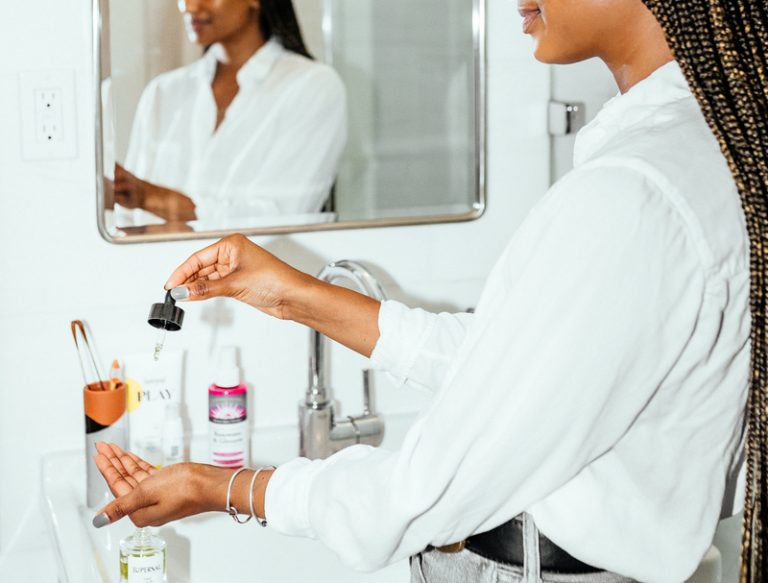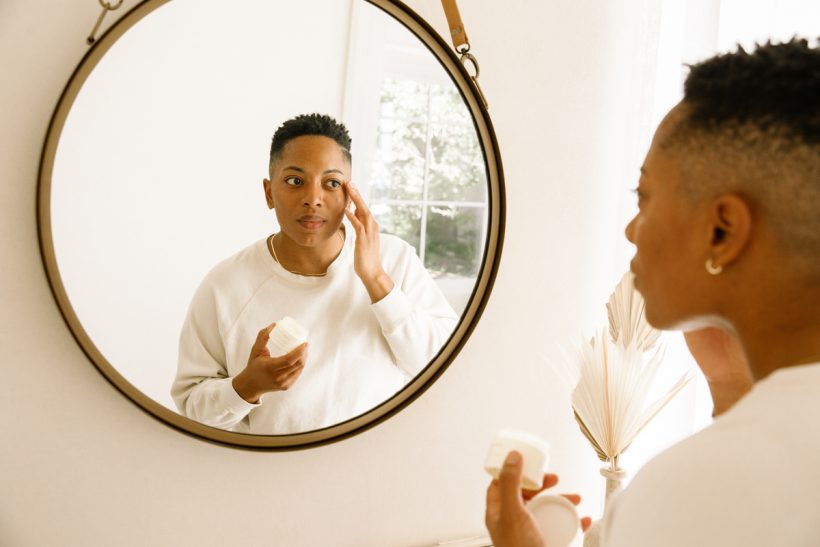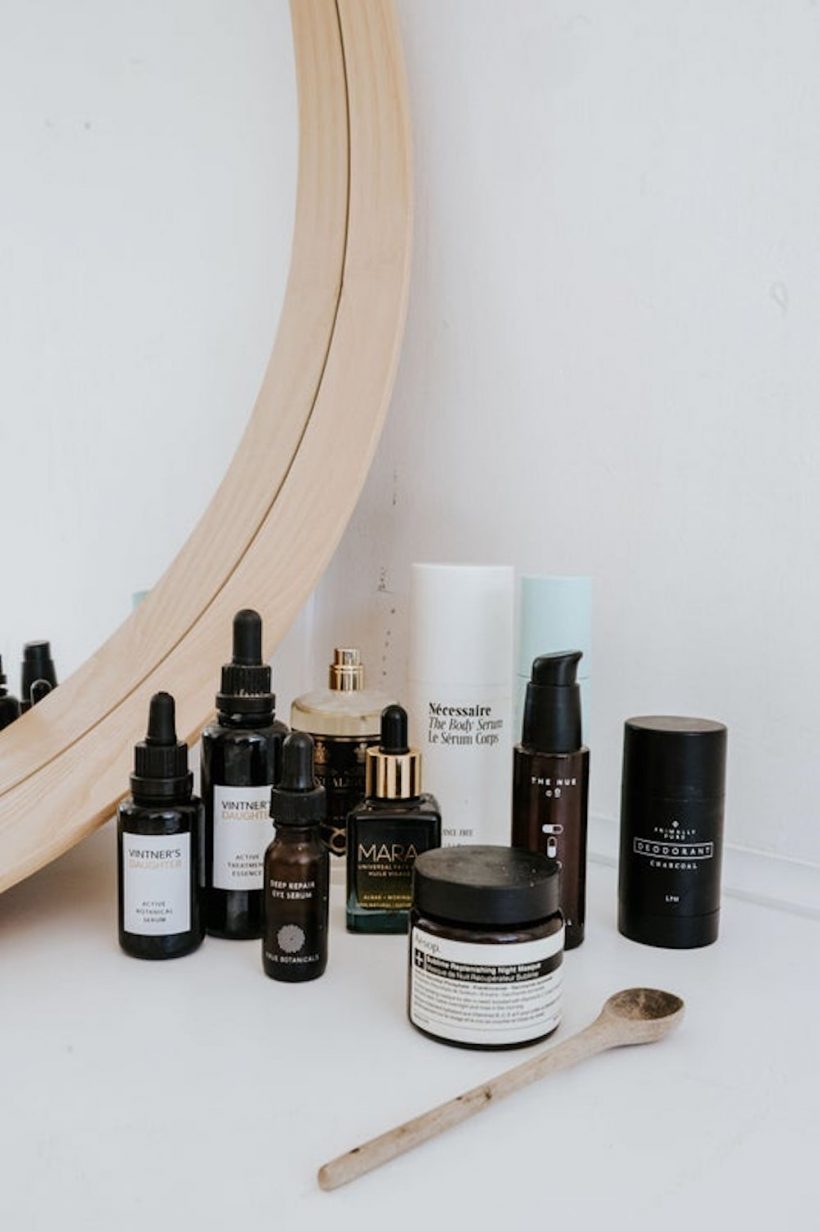
What if you could get a more even complexion while you sleep? By now, most of us know the benefits of good sleep hygiene. Better sleep translates to better mood, overall health, and yes, even skin. Turns out, beauty sleep is more than just a fairytale. From supplements to face masks, adding certain products to your nighttime routine can basically help you sleep your way to clearer, brighter skin. And almost every dermatologist we know recommends retinol as part of your nighttime regimen, especially if you’ve dealt with stubborn dark spots. The best retinols for hyperpigmentation can help make skin more even, as well as helping with fading scars.
Starting your retinol journey can be intimidating. All that talk about “the retinol purge” or having to get a prescription for tretinoin — I’ve been there. To ease myself into it, I started small. I researched the best retinols for hyperpigmentation and I started there. And while retinol is also great for anti-aging and acne, I wanted products to help fade my scars.
Retinol works by increasing cell turnover, stimulating collagen production, and inhibiting excess melainin production. All of which is to say: any retinol product acts against hyperpigmentation. In my journey, I wanted the best retinols for hyperpigmentation — products formulated with ingredient combos made specifically for the results I was looking for. To explain the skin science behind this, I talked to Dr. Michelle Henry, a dermatologist based in New York, about all things retinol and hyperpigmentation. She even gave me her dermatologist-approved product picks — so I’ll definitely be adding them to my routine. Read on for the best retinols for hyperpigmentation.
How does retinol treat hyperpigmentation? How do you know if a retinol product can effectively treat hyperpigmentation?
Retinoids are different forms of Vitamin A. Retinol is a type of retinoid that you can usually find over the counter. Different retinol products have different strengths and are combined with different ingredients to achieve specific goals. But no matter the product, Dr. Henry says a key characteristic of retinoids is their ability to “block the synthesis of epidermal melanin.”
“Retinoids also help enhance skin cell turnover, reducing the overall appearance of hyperpigmentation,” she adds. “The most important factor that determines whether or not a retinol product can effectively treat hyperpigmentation, is the amount of active retinoic acid found in the formula. Higher concentrations of retinoic acid have stronger effects on the skin.”
How do you use retinol to treat hyperpigmentation?
“Ease into your retinol journey,” Dr. Henry advises. “The overuse of these products may lead to skin irritation, dryness, itchiness, and patchiness. Start by applying the retinol cream once or twice a week. Over time, you can build up the amount of retinol introduced to the skin.”
Dr. Henry also urges anyone using retinol to practice patience. Keep up a consistent routine, even if it takes weeks to see results. Depending on the concentration of retinol you’re using and your unique skin, it might be a while before you see progress. But retinol is working to transform your skin at the cellular level. With consistency and patience, those stubborn scars will eventually fade and it will be well worth the wait.
Does retinol cause irritation? Who should use retinol?
Though many see retinol as a holy grail product, its efficacy is in its strength. Therefore, some skin types and skin conditions might be too sensitive for some of the stronger retinol products. But don’t worry, some of the best retinols for hyperpigmentation are formulated specifically to work for sensitive skin without doing further damage.
“As these formulas stimulate new skin cell production, it may take a few weeks before the skin gets adjusted to the powerful Vitamin A derivatives,” warns Dr. Henry. “If your skin is naturally sensitive, opt for over-the-counter retinol creams that have a lower concentration of active retinoic acid.”
What other ingredients work with retinol to treat hyperpigmentation?
When you introduce retinol to your routine, you might experience dryness. It’s important to pack your routine with nourishing ingredients like antioxidants, peptides, and ceramides to help your skin heal and repair itself while protecting the moisture barrier.
Dr. Henry adds that moisture also helps prevent further dark spots and scarring. “As retinol can initially be drying or irritating, this can cause hyperpigmentation on the skin, so it’s necessary to add regular moisture,” she says. Expert tip: “if you are particularly sensitive you can moisturize both before and after applying.”
Also, look for products that contain a synergistic blend of scar-fading ingredients that help accelerate cell turnover while reducing irritation. Hyaluronic acid is a great addition to your retinol routine because it packs the skin with moisture. Niacinamide also works alongside retinol to soothe irritation while powerfully fading scars. Other antioxidants have a similar effect.
Plus, while you should switch off the days you dedicate to using AHA/BHA products with the days you use your retinol products, some formulas seamlessly blend exfoliants with retinol to give you the benefits of both without extra irritation.
Read on to discover some of the best retinols for hyperpigmentation, including Dr. Henry’s picks for different skin types and concerns.




